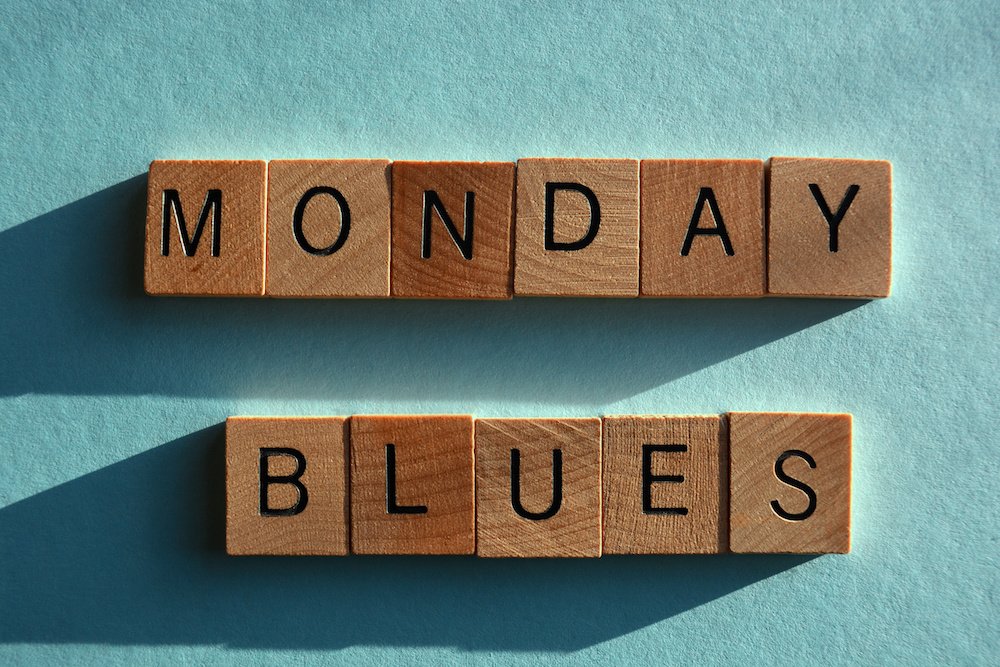New research reveals a biological explanation for Monday Anxiety—and it’s not about your job.
Monday Anxiety Has a Biological Signature, Says Study
For the first time, scientists have found a distinct biological source of “Monday dread” that’s independent of work status and not seen on any other day of the week. What’s more, for some people, long-term stress triggered on Mondays is putting their heart at serious risk.
Researchers from the University of Hong Kong (HKU) found that Mondays, for many the start of the working week, have a unique impact on the body’s stress response and can trigger chronic issues that can be measured by lingering cortisol levels in hair.
“Mondays act as a cultural ‘stress amplifier,’” said Professor Tarani Chandola from the Department of Sociology, Faculty of Social Sciences at HKU. “For some older adults, the week’s transition triggers a biological cascade that lingers for months. This isn’t about work – it’s about how deeply ingrained Mondays are in our stress physiology, even after careers end.”
Hair Samples Reveal the Toll of Monday Stress
The study analysed data from 3,511 adults aged 50 years and above, taken from the English Longitudinal Study of Ageing (ELSA, Wave 6, 2012–2013). Participants had all recorded stress levels on a Monday during their questionnaire sessions and provided hair samples to assess long-term hormone exposure—particularly cortisol and cortisone (a metabolite of cortisol).
Because the samples were around 2 cm in length, taken from the scalp, researchers could measure stress hormone levels across two to three months. Variables like age, sex, BMI, smoking, medication, and socioeconomic status were factored in and adjusted for.
Read:The FDA has issued two separate recall notices for mushroom products over concerns of Listeria
Monday Stress Persists—Even After Retirement
The researchers found that older adults who rated their anxiety levels on Mondays as the highest had significantly greater levels of cortisol in their hair samples, indicating a sustained and chronic state of stress. This pattern emerged in both working individuals and retirees, suggesting that regardless of job status, Mondays have a way of triggering an enduring stress response.
Clues to Cardiovascular Risk
An earlier study had already found a link between Mondays and an increased prevalence of severe heart attacks. While this new research isn’t directly tied to that, the biological stress triggered by Monday anxiety may help explain the mechanisms behind that elevated risk.
Researchers identified a key stress system involved: the hypothalamic–pituitary–adrenal (HPA) axis. This system regulates the body’s stress responses through a feedback loop involving the brain’s hypothalamus and pituitary gland, and the adrenal glands which release cortisol.
In a normally functioning system, cortisol levels rise in response to stress, then return to baseline. But if the HPA axis becomes dysregulated—as it can in chronic stress, PTSD, and related conditions—cortisol remains elevated, increasing the risk for cardiovascular disease, obesity, clinical anxiety, and cognitive decline.
23% Higher Cortisol for Monday-Anxious People
The data showed that people who reported feeling anxious specifically on Mondays, and not on other days, had on average 23% higher levels of cortisol in their hair compared to those who said they felt anxious on any other day.
Everyone who reported anxiety had some level of cortisol detected. However, the most stressed group—10% of respondents with the highest cortisol levels—felt especially anxious when Monday arrived.
So, while many people may feel anxious on Mondays, only those with already high physiological stress appear to biologically encode that anxiety, as shown by their elevated long-term cortisol levels.
Study Limitations and Future Research
“Previous studies have shown some evidence for higher cortisol levels on weekdays than on weekends, although none have identified a specific anxious Monday effect,” the researchers noted.
They added, “As hair cortisol is an integrated measure of HPA axis activity over the preceding several months, this study could not identify whether cortisol levels are higher on Mondays. Instead, this study revealed an association between reported feelings of anxiety on Mondays and excessive levels of glucocorticoid production.”
Pathway to Target Chronic Stress
More research is needed to identify specific cortisol spikes on Mondays. However, this study highlights a clear biological response to Monday anxiety in older adults, independent of employment. It also opens a path to targeting chronic stress, especially for those in high-risk categories with persistent elevated cortisol levels—people who may be more susceptible to serious long-term health problems.
Published in the Journal of Affective Disorders
Source: The University of Hong Kong




